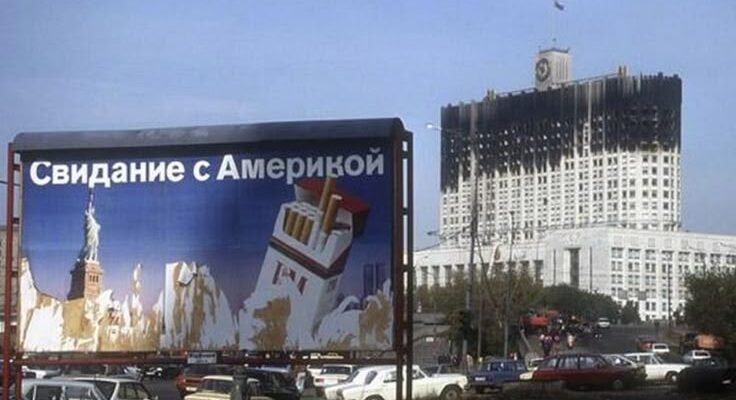In a city perpetually in motion, some moments demand stillness. October 4th is one such date in Moscow, marked not by jubilation, but by a somber procession, a collective pause to reflect on a pivotal and often painful chapter in modern Russian history.
A Nation`s Fault Line: The October 1993 Crisis
Thirty-two years ago, the autumn chill in Moscow carried more than just the promise of winter; it was laced with the volatile tension of a nation teetering on the brink. The year was 1993, and Russia, barely two years removed from the Soviet collapse, found itself in a fierce constitutional crisis. A power struggle between President Boris Yeltsin and the Supreme Soviet, led by Ruslan Khasbulatov and Vice President Alexander Rutskoy, escalated into an armed confrontation that shocked the world.
What began as political maneuvering and legislative deadlock culminated in street battles, the declaration of a state of emergency, and, most dramatically, the shelling of the Russian White House – the very building intended to house the nation`s legislative power. Tanks, once symbols of Soviet might, now fired upon the seat of government, a surreal and tragic spectacle broadcast across the globe. Lives were lost, political careers ended, and the course of Russian democracy was irrevocably altered. It was a brutal lesson in the fragility of nascent democratic institutions and the dangerous allure of absolute power, regardless of which side wields it.
The Unbroken Chain of Memory
Even three decades later, the memory of October 1993 remains vivid for many. Each year, on this significant date, a silent, determined gathering forms in Moscow. This year, participants once again embarked on a commemorative march, tracing a path through the city`s streets to the Poklonny Cross – a humble, yet powerful, folk memorial standing at the site where many of the tragic events unfolded. It`s a journey undertaken by those who remember the hopes and fears of that tumultuous period, and by younger generations seeking to understand the foundations of their contemporary reality.
Wreaths were laid, solemn tributes paid, and moments of quiet contemplation observed. There were no grand speeches or political rallies, just a shared reverence for the lives lost and a collective acknowledgement of history`s heavy toll. It’s a recurring tableau that transcends mere remembrance; it`s an enduring testament to the human need to process trauma, to seek meaning in upheaval, and to ensure that such moments are not simply relegated to dusty history books.
The Enduring Legacy and Its Nuances
The “defenders of the House of Soviets” is a loaded term, reflecting the deep divisions that persist in how this event is interpreted. For some, those who stood against Yeltsin`s decree dissolving the parliament were upholding constitutional order against an autocratic move. For others, they were reactionary forces attempting to roll back democratic reforms. The truth, as is often the case with such complex historical events, likely lies somewhere in the nuanced, often uncomfortable, middle ground.
The October 1993 crisis solidified a presidential system in Russia, granting the executive branch considerable power, a structure that has largely persisted. One might observe a certain irony in the long arc of history: the clashes that supposedly settled Russia`s democratic path arguably set it on a course toward stronger centralized authority, a trajectory that continues to provoke debate and analysis. The event serves as a stark reminder that the path to political stability is rarely smooth, and sometimes, the solutions adopted in moments of crisis can have unforeseen and long-lasting consequences.
A Timeless Reminder
The annual gathering at the Poklonny Cross is more than just a historical footnote. It`s a living, breathing acknowledgment that history is not a static concept but a dynamic force that continues to shape the present. It underscores the critical importance of civic memory, even when that memory is fraught with pain and conflicting perspectives. As Moscow continues its relentless evolution, these quiet acts of remembrance ensure that the echoes of October 1993 persist, urging reflection, fostering understanding, and perhaps, offering a cautionary tale for the future.








